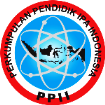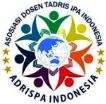Project Based Learning (PjBL) Model with STEAM Approach: Its Impact on Students Creative Thinking Skills on Energy in Living System Topic
Abstract
This research aims to determine the increase in creative thinking skills of secondary school students through the application of the PjBL model with a STEAM approach to energy materials in living systems. This research uses a true experimental method with a pretest-posttest control group design. The population of this study was all class VII students. The sample selection used a simple random sampling technique so that one experimental class was selected which applied the PjBL model with the STEAM approach and one control class which applied the conventional learning model. Data collection was carried out through creative thinking skills test questions and observation sheets. Posttest data on students' creative thinking skills were analyzed using the Mann-Whitney test, and observation sheets were analyzed using descriptive analysis. The results of the analysis using the N-gain test in the control class obtained a value of 47,4 in the medium category and the experimental class with an N-gain of 71 in the high category. It can be concluded that there is a significant increase in students' creative thinking skilss after learning using the PjBL model with the STEAM approach in learning Energy in Living Systems.
Keywords: project based learning, steam, creative thinking skills, energy in living systems
Full Text:
PDFReferences
Ahmad, D. N., Astriani, M. M., Alfahnum, M., & Setyowati, L. (2021). Increasing creative thinking of students by learning organization with STEAM education. Jurnal Pendidikan IPA Indonesia, 10(1), 103–110.
Annisa, R., Effendi, M. H., & Damris, D. (2019). Peningkatan kemampuan berpikir kreatif siswa dengan menggunakan model project based learning berbasis STEAM (Science, Technology, Engineering, Arts Dan Mathematic) Pada Materi Asam Dan Basa Di Sman 11 Kota Jambi. Journal of The Indonesian Society of Integrated Chemistry, 10(2), 14–22.
Ardianti, S. D., Pratiwi, I. A., & Kanzunnudin, M. (2017). Implementasi project based learning (pjbl) berpendekatan science edutainment terhadap kreativitas peserta didik. Refleksi Edukatika : Jurnal Ilmiah Kependidikan, 7(2), 145–150.
Diana, H. A., & Saputri, D. V. (2021). Model project based learning terintegrasi steam terhadap kecerdasan emosional dan kemampuan berpikir kritis. Jurnal Numeracy, 8(2), 113–127.
Doppelt, Y. (2009). Assessing creative thinking in design-based learning. International Journal of Technology and Design Education, 19(1), 55–65.
Dywan, A. A., & Airlanda, G. S. (2020). Efektivitas model pembelajaran project based learning berbasis stem dan tidak berbasis STEM terhadap kemampuan berpikir kritis siswa. Jurnal Basicedu, 4(2), 344–354.
Fanani, M. Z. (2018). Strategi pengembangan soal HOTS pada kurikulum 2013. Edudeena, 2(1), 57–76.
Fitriyah, A., & Ramadani, S. D. (2021). Pengaruh pembelajaran STEAM berbasis PjBL (Project-Based Learning) terhadap keterampilan berpikir kreatif dan berpikir kritis. Jurnal Inspiratif Pendidikan, 10(1), 209-226.
Hake, R. R. (1998). Interactive-engagement versus traditional methods. American Journal of Physics, 66(1), 64–74.
Junedi, B., Mahuda, I., & Kusuma, J. W. (2020). Optimalisasi keterampilan pembelajaran abad 21 dalam proses pembelajaran pada Guru MTs Massaratul Mut’allimin Banten. Transformasi: Jurnal Pengabdian Masyarakat, 16(1), 63–72.
Lestari, I., & Ilhami, A. (2022). Penerapan model project based learning untuk meningkatkan keterampilan berpikir kreatif siswa smp: systematic review. LENSA (Lentera Sains): Jurnal Pendidikan IPA, 12(2), 135–144.
Lestari, S. (2021). Pengembangan orientasi keterampilan abad 21 pada pembelajaran fisika melalui pembelajaran PjBL-STEAM berbantuan spectra-plus. Ideguru: Jurnal Karya Ilmiah Guru, 6(3), 272–279.
Lukum, A. (2015). Evaluasi program pembelajaran IPA SMP menggunakan model countenance stake. Jurnal Penelitian Dan Evaluasi Pendidikan, 19(1), 25–37.
Miller, A. I., Wilson, B., & Hawkins, B. (2019). Featuring Art and Science in a Transdisciplinary Curriculum Circe Magazine: STEAM Edition. Circe Magazine: STEAM Edition, January, 0–167. http://www.circesfu.ca
Permana, N. D. (2018). Penerapan model pebelajaran learning cycle 7e berbantuan website untuk meningkatkan keterampilan berpikir kritis siswa pada materi kinematika gerak lurus. Journal of Natural Science and Integration, 1(1), 11–41.
Prajoko, S., Sukmawati, I., Maris, A. F., & Wulanjani, A. N. (2023). Project based learning (pjbl) model with stem approach on students’ conceptual understanding and creativity. Jurnal Pendidikan IPA Indonesia, 12(3), 401–409.
Purnomo, Halim dan Ilyas, Y. (2019). Tutorial pembelajaran berbasis proyek. K-Media.
Quigley, C., Herro, D., & Jamil, F. (2017). Developing a STEAM classroomassessment of learning experiences. School Science & Mathematics.
Reynawati, A., & Purnomo, T. (2018). Penerapan model problem based learning pada materi pencemaran lingkungan untuk melatihkan keterampilan berpikir kreatif siswa. PENSA: E-JURNAL PENDIDIKAN SAINS, 6(02).
Sari, D. N. A., Rusilowati, A., & Nuswowati, M. (2017). Pengaruh pembelajaran berbasis proyek terhadap kemampuan literasi sains siswa. PSEJ (Pancasakti Science Education Journal), 2(2), 114.
Sari, W. P., Hidayat, A., & Kusairi, S. (2018). Keterampilan berpikir kreatif siswa sma dalam pembelajaran project based learning (PjBL) pada materi fluida statis. Jurnal Pendidikan: Teori, Penelitian, Dan Pengembangan, 3(6), 751–757.
Sugiyono. (2019). Metode Penelitian Kuantitatif Kualitatif dan R&D (Ke 2). Alfa Beta.
Suryaningsih, S., & Ainun Nisa, F. (2021). Kontribusi STEAM project based learning dalam mengukur keterampilan proses sains dan berpikir kreatif siswa. Jurnal Pendidikan Indonesia, 2(6), 1097–1111.
Thuneberg, H., Salmi, H., & Fenyvesi, K. (2017). Hands-On Math and Art Exhibition Promoting Science Attitudes and Educational Plans. Education Research International, 2017, 1–13. https://doi.org/10.1155/2017/9132791
Yuenyong, C. (2019). Lesson learned of building up community of practice for STEM education in Thailand. AIP Conference Proceedings, 2081(May). https://doi.org/10.1063/1.5093997
DOI: http://dx.doi.org/10.24014/jnsi.v6i2.25791
Refbacks
- There are currently no refbacks.

Journal of Natural Science and Integration
E-ISSN: 2620-5092 P-ISSN: 2620-4967
Published By:
Department of Science Education, Faculty of Education and Teacher Training,
State Islamic University of Sultan Syarif Kasim Riau, Indonesia
Mailing Address:
Jl. H.R Soebrantas Km. 15 No. 155
Kelurahan Simpang Baru
Kecamatan Tuah Madani, Pekanbaru, Riau, Indonesia
Email: jnsi.tadrisipa@uin-suska.ac.id
Indexed By:
Journal of Natural Science and Integration is licensed under a Creative Commons Attribution 4.0 International License.


_-_Copyy2.png)






.jpg)
.png)
.jpg)
.jpg)




